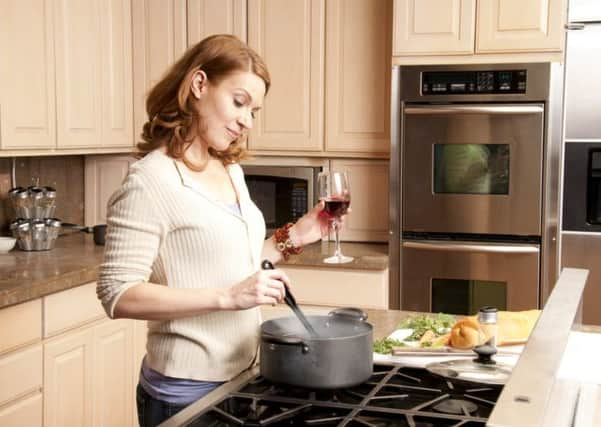One in five young professionals admit to having a drink problem


The research found that more men in this category said they believed they had issues with alcohol (28 per cent), while for both men and women it was 21 per cent.
On average seven per cent of those questioned admitted to having a drinking problem, but more than one in 10 (13 per cent) of 25 to 34-year-olds said they did while nearly half said they knew someone else who had one.
Advertisement
Hide AdAdvertisement
Hide AdThe poll of 4,000 UK adults also found that a third (35 per cent) of 18 to 24-year-olds said they had got so drunk they could not remember most of their night out, with one in five admitting they have not been able to recall how they got home.


One in 20 admitted to driving themselves home drunk and one in ten have got in a car with someone who they knew was intoxicated, while 16 per cent of 25 to 34-year-olds said they have woken up in a stranger’s house.
Meanwhile nearly a quarter (23 per cent) of those aged 35 to 54 said they drink alone at home, with many saying they do it to relieve stress or relax.
The issue of alcohol abuse was not lost on people, with three-quarters (75 per cent) of those polled saying they thought Britain has a heavy drinking culture.
Advertisement
Hide AdAdvertisement
Hide AdSarah Turner, the founder of Harrogate Sanctuary, a service for women concerned about their drinking, said alcohol consumption was now more harmful to the people involved than smoking.
The 58-year-old from Harrogate, who gave up drinking 13 years ago after a long history of dependence on alcohol, has co-authored a best-selling book Sober Revolution about women and their relationships with alcohol.
She said: “The percentages and statistics [of people with a drinking problem] are under reported, because so few people tell the truth about how and how much they drink.
“Figures actually show that the young are getting less intoxicated, it is perhaps their parents who have a more hidden problem.
Advertisement
Hide AdAdvertisement
Hide Ad“Their drinking leads to related disease, such as breast cancer. Three glasses of wine a night increases the risk in women by 50 per cent of alcohol-related early onset dementia, and many other cancers such as head, throat and stomach.
“These are young people’s role models, and heavy drinking is often learned behaviour. As for seeking help from GPs, they have very few options, and 27 per cent of my client base last year were from the healthcare sector, they too have their own demons with alcohol.
“The stigma is immense, people are still castigated for not drinking as they are for drinking too much.
“Attitudes have to change, and the only way that will happen is if people can be allowed to be more honest, going to a doctor and admitting to drinking too much will be recorded on medical records, another reason so many are not truthful about the actual amounts they drink at home.”
Advertisement
Hide AdAdvertisement
Hide AdJames Endersby, managing director of Opinium Research, which commissioned the poll, said: “Many of us enjoy a drink and in moderation it can be an important part of socialising and relaxation for many people.
“However it is clear that many, particularly the young and those in professional jobs, drink regularly and in excess; and as our study shows, often with dangerous repercussions that impacts their health, well-being, security and friendships in many cases.
“Guidelines say that the key is moderation; everyone should have the freedom to treat themselves to a drink but it is important that we don’t ignore the health implications of having a good time.”
Alistair Bohm, head of communications at drug and alcohol treatment charity Addaction, said: “Problems with alcohol use can affect people of any age, from any background.
Advertisement
Hide AdAdvertisement
Hide Ad“As these statistics show, it’s not just people who are addicted to alcohol who are damaging their health or risking their safety as a result of drinking.
“If a person is worried about their drinking, the best thing to do is speak to their doctor, or find their nearest addiction services.”